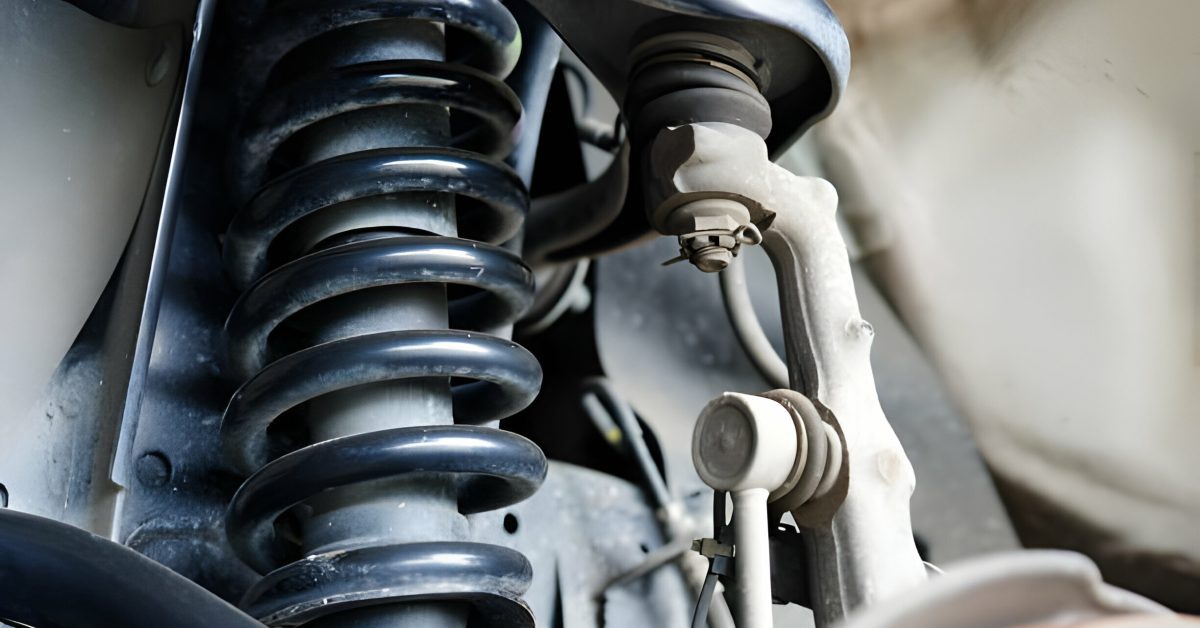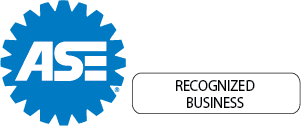In the realm of automotive care, one often overlooked yet crucial aspect is the maintenance of the vehicle’s suspension system. This intricate network, comprising components such as suspension joints, ball joints, and specifically, the front ball joint, plays a pivotal role in ensuring not only the smoothness of your ride but also its safety. At Metric Motors, we understand that the suspension system is the backbone of your vehicle’s comfort and handling capabilities. Whether it’s a routine suspension tune-up or more complex suspension repairs, taking care of your suspension system is tantamount to preserving the life and performance of your vehicle.
The essence of a well-maintained suspension system cannot be overstated. From the suspension joints that absorb the shocks of the road to the precision of the front ball joints that enable effortless steering, each component works in harmony to mitigate the roughness of the terrain. However, like any well-oiled machine, your vehicle’s suspension system requires regular maintenance and, occasionally, suspension joint replacement or a full car suspension repair service to continue operating at its best.
As we embark on this comprehensive guide to suspension system maintenance, remember that ensuring a smooth ride is not just about addressing the visible issues. It’s about proactively caring for your suspension, from the car suspension joints to the vehicle ball joint, ensuring every journey is as smooth as the first. Join us as we explore the significance of your suspension system, the signs of wear and tear to look out for, and the steps you can take to maintain this critical component of your vehicle’s anatomy.
Understanding Your Suspension System
The suspension system of a vehicle is akin to the legs of a human, providing support, absorbing impacts, and ensuring stability and comfort. At its core, the suspension system is designed to minimize the friction between the tires and the road surface, providing optimal steering stability with good handling and ensuring the comfort of the passengers. Let’s delve deeper into the components that make up this system and their roles in your vehicle’s overall performance.
Key Components of the Suspension System:
- Suspension Joints: These pivotal points in the suspension system allow for the necessary movement and flexibility of the suspension parts. They play a crucial role in maintaining the alignment of the wheels and the car’s stability on the road.
- Ball Joints: Serving as the pivot between the wheels and the suspension of the car, ball joints are found in both the front and rear suspension systems but are most commonly associated with the front ball joints. These spherical bearings ensure that the car maintains optimal contact with the road through varied movements.
- Front Ball Joints: Specifically located at the front of the vehicle, these are critical for steering and pivoting the front wheels. The health of the front ball joints is directly tied to the vehicle’s handling and safety.
The Functionality of Suspension Systems
The suspension system’s primary function is to absorb the shocks and vibrations from the road, ensuring that the vehicle’s cabin remains comfortable for its passengers. Moreover, it keeps the wheels in constant contact with the road, providing traction and aiding in braking and handling. The suspension system intricately balances these duties, ensuring that bumps and dips in the road are not directly transferred to the body of the vehicle, thereby safeguarding the occupants from potential discomfort.
Importance of Maintenance
Regular maintenance of the suspension system, including inspections of the suspension joints, ball joints, and particularly the front ball joints, is essential for the longevity and safety of your vehicle. Issues such as suspension joint wear or a failing ball joint can lead to decreased handling and stability, significantly impacting the safety and comfort of the ride. Understanding the integral role each component plays in the suspension system can help vehicle owners appreciate the importance of routine suspension system service and maintenance.
Signs of Suspension System Wear and Tear
A well-functioning suspension system is pivotal for the smooth operation and safety of your vehicle. However, over time, the components of the suspension system, such as the ball joints, suspension joints, and especially the front ball joints, can wear out or become damaged. Recognizing the early signs of wear and tear can save you from costly repairs down the line. Here are several indicators that your vehicle’s suspension system may need a professional inspection or service:
Unusual Noises
- Creaking or Clunking Sounds: Hearing these sounds when driving over bumps or making turns can indicate worn or damaged suspension joints, including the critical ball joints. Such noises should prompt a suspension check to determine if parts like the front suspension ball joints need replacement.
Uneven Tire Wear
- Irregular Wear Patterns: If your tires are wearing down unevenly, it could be a sign that the suspension system isn’t holding the car evenly, or there may be an issue with the alignment, often related to faulty suspension components.
Poor Handling or Steering
- Difficulty Steering: A vehicle that feels harder to steer, especially at low speeds, might have issues with its suspension ball joints or other steering components within the suspension system.
- Loose Handling: A car that feels “loose” or unstable on the road may have worn suspension joints, affecting the vehicle’s ability to maintain a straight path.
Excessive Bouncing or Rocking
- Bouncing After Bumps: If your car continues to bounce or rock after going over a bump, or if it dives forward when braking, it’s likely that the suspension system, particularly the shock absorbers or struts, needs attention.
Visible Component Damage
- Inspecting Suspension Components: Regular visual inspections can reveal issues such as a damaged suspension ball or leaking fluid from shock absorbers. Visible wear or damage to these parts warrants a closer examination by a professional.
Understanding these signs and responding promptly to the need for suspension system service or suspension joint replacement can significantly enhance your vehicle’s safety, comfort, and performance. Regular checks and maintenance can help identify and address issues like worn front wheel ball joints or suspension tune-up needs before they escalate into more severe problems.
Taking proactive steps towards suspension maintenance ensures that your vehicle remains a reliable and smooth companion on all your journeys, encapsulating the essence of a well-maintained ride.
Routine Suspension Maintenance: Keeping Your Ride Smooth
The suspension system of your vehicle, a complex assembly of ball joints, suspension joints, and other critical components, demands regular maintenance to ensure a safe and comfortable ride. Effective suspension maintenance not only extends the lifespan of your vehicle but also significantly contributes to its safety and efficiency. Here are some key practices and considerations for keeping your suspension system in top condition:
Regular Inspection:
- Comprehensive Checks: Schedule regular inspections of your vehicle’s suspension system. This should include a detailed look at suspension joints, ball joints, especially front ball joints, and other components for signs of wear or damage. Early detection of issues such as worn-out suspension ball joints can prevent more severe problems down the line.
Lubrication:
- Keeping Joints Supple: Ensure that all movable parts of the suspension system, like the ball and joint connections, are adequately lubricated. This can reduce wear and tear and prevent the rusting of these critical components.
Wheel Alignment:
- Maintaining Alignment: Regularly check and adjust your vehicle’s wheel alignment. Improper alignment can lead to uneven tire wear and put additional stress on suspension components, affecting the vehicle’s handling and safety.
Tire Maintenance:
- Optimal Tire Condition: Keep tires properly inflated and rotate them according to the manufacturer’s recommendations. Tires in good condition work synergistically with the suspension system to absorb road shocks and maintain vehicle stability.
Avoid Overloading:
- Protecting the Suspension: Avoid overloading your vehicle beyond its recommended capacity. Excessive weight can strain the suspension system, leading to premature wear of components like the vehicle ball joint and suspension joints.
Professional Checks:
- Seek Expertise: While some maintenance tasks can be performed by vehicle owners, professional checks are crucial for assessing the condition of complex parts like the suspension system. Technicians can perform a thorough suspension system service, including a suspension tune-up, and replace parts like the suspension joints replacement if necessary.
Implementing a routine suspension maintenance schedule can significantly enhance your vehicle’s performance and extend its lifespan. Regular care, including checking for signs of wear, and ensuring proper lubrication and alignment, and consulting with professionals for comprehensive checks and repairs, is essential. This proactive approach to suspension maintenance not only ensures your safety but also contributes to a smoother, more enjoyable driving experience.
DIY Versus Professional Suspension Maintenance
Maintaining a vehicle’s suspension system is crucial for ensuring a smooth ride and longevity of the car. For many car enthusiasts and handy vehicle owners, the question often arises: Should I undertake suspension maintenance myself or leave it to the professionals? Here’s a breakdown of both options:
DIY Suspension Maintenance:
Advantages:
- Cost Savings: Performing simple maintenance tasks like regular inspections or minor adjustments can save money on labor costs.
- Personal Satisfaction: Many find personal satisfaction and pride in performing their own vehicle maintenance.
Considerations:
- Limited Scope: DIY enthusiasts can handle basic maintenance, such as lubricating suspension joints and checking for visible signs of wear. However, more complex tasks, like replacing ball joints or correcting wheel alignment, require specialized tools and knowledge.
- Risk of Mistakes: Incorrectly performed maintenance can lead to further damage or reduce the vehicle’s safety. It’s crucial to have a good understanding and experience before attempting any repairs.
Professional Suspension Maintenance:
Advantages:
- Expertise and Experience: Professionals possess the necessary skills, experience, and tools to diagnose and repair suspension issues accurately, ensuring the job is done right.
- Warranty and Assurance: Many repair shops offer warranties on parts and labor, providing peace of mind and protection against future issues.
Considerations:
- Cost: Professional services can be more costly upfront, but investing in expert maintenance can prevent more expensive repairs in the future due to overlooked or misdiagnosed issues.
As we conclude our comprehensive guide to suspension system maintenance, it’s clear that keeping your vehicle’s suspension in top condition is essential for a smooth, safe, and enjoyable driving experience. Whether you choose the DIY route for basic maintenance tasks or opt for the expertise of professionals for more complex repairs, what matters most is taking proactive steps to care for your suspension system.
At Metric Motors, we’re committed to providing top-notch suspension repair and maintenance services. Our team of skilled technicians is equipped to handle everything from routine suspension checks to complex repairs, ensuring your vehicle always delivers a smooth and reliable ride.
Don’t let suspension issues shake up your journey. Contact us today to schedule your suspension system service or visit our website for more information on how we can keep your ride smooth and safe. Remember, regular maintenance is key to extending the life of your vehicle and ensuring the safety of all who ride with you.








